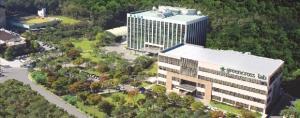GC said Wednesday it recorded sales of 1.36 trillion won ($1.1 billion) last year, an increase of 2.6 percent from 2018. However, the company’s operating profit plunged 19.7 percent to 40.3 billion won, and its net deficit turned around to a deficit of 11.2 billion won.

“Domestic sales, bolstered by our flagship blood products, vaccines and consumer healthcare service, grew 3 percent last year from 2018,” the company said. Blood product sales rose 2.2 percent, and vaccine and consumer healthcare sales grew 15 and 23 percent, respectively, leading overall sales growth, it added.
GC’s influenza vaccines showed a particularly robust sales growth of 33.5 percent, both in domestic and overseas markets. However, due to delays in chickenpox vaccine exports and the discontinuance of some licensed-in products, the company’s export and specialty drug divisions recorded sales loss.
The company also attributed its fluctuated profitability to a 12.3-percent increase in marketing and administrative expenses, including R&D spending as well as one-off expenditures such as valuation losses on its financial assets in non-operating items.
Despite weak profitability, the company’s affiliates managed to continue their growth.
GC MS improved profitability based on the solid growth of its flagship business. The company’s point-of-care test (POCT) and hemodialysis solution business continued to grow, with the company recording sales of 941 billion won in 2019, a 9 percent increase from 2018. GC Wellbeing and GC Labcell also recorded annual sales of 66.9 billion won and 57.9 billion won, respectively, up 24.2 and 14.4 percent increase from 2018.
“We will continue to expand R&D investment for business growth and improve profitability through efficient management such as cost cuts,” a company official said.

